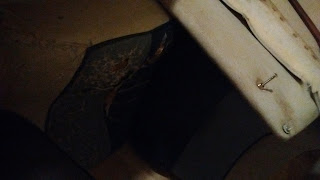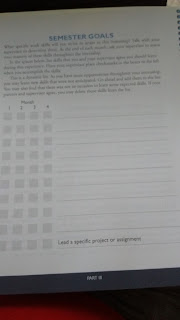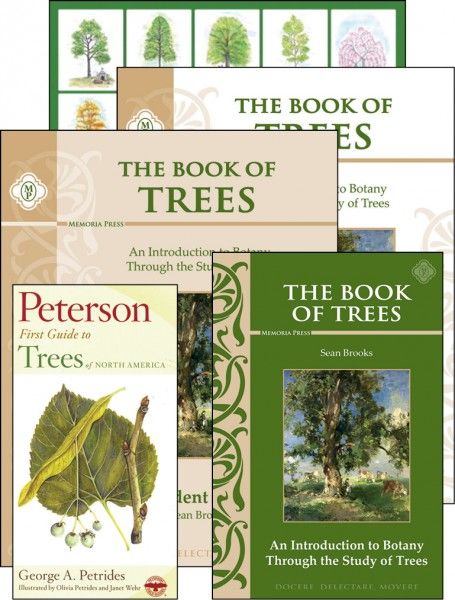With kids in high school and looking at colleges, a word that pops up occasionally is INTERNSHIPS. I think this is kind of an "in thing" right now. Addressing this topic in a homeschool setting is a book from
Apologia Educational Ministries entitled
Internship for High School Credit. I was given the opportunity to review this resource, and based on past experience (as well as the reputation they have for high quality) I was happy to check out these materials by
Apologia Educational Ministries.
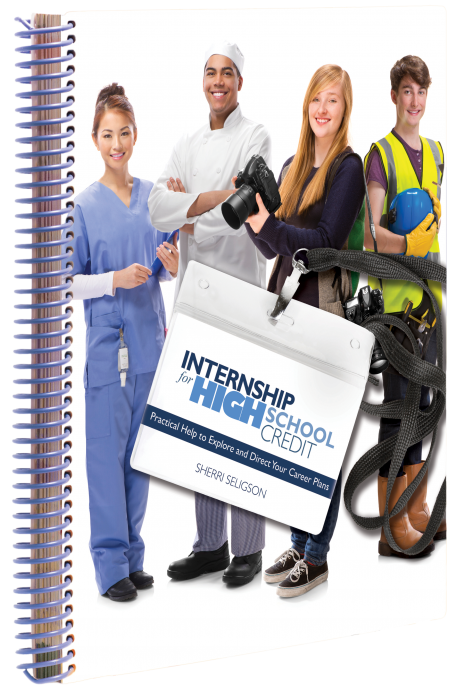
The book begins with an introductory section that gives readers a definition of an internship along with many reasons why internships benefit a high school student (or anyone in general). Some of the internship benefits they list are:
*Explore a career
*Learn day-to-day job responsibilities
*Discover job likes and dislikes
*Focus more closely on a college major
*Bolster a college application
*Gain experience related to career goals
*Increase scholarship opportunities
*Gain marketable skills
*Increase potential job offers
Homeschooled students usually have a more flexible schedule than those in traditional school, so an internship may be easier for them to fit into their week. The benefits of an internship are definitely educational, and as such, many parents may wish to incorporate an internship into their child's transcript. This book gives ideas and advice about how to do this, whether it be a one-semester internship or a two-semester.
Creating an internship "course" for the transcript, some parents may wish to incorporate having their student make a written record of different aspects of the internship/job. Included in this book are many ideas for this, including a place to record goals for the internship semester and several guided writings and questions to encourage the student to think about different things and record them.
Sprinkled throughout the book are little tips, such as the one seen below--lots of little bits of practical advice for internships or jobs or life!
Other valuable contents included a section on how exactly to choose an internship. I thought this part was very well-written and helpful for a highschooler. Yes, you may want to go into haute couture fashion design, but you may not be able to find an internship at that level :) :) -- so how about checking out other aspects of the same field, such as upholstery design, or something related however peripherally? This is a great eye-opener to those who feel that an internship would not be available in their desired field--maybe there is one close to it which will still give you many of the benefits and a similar experience.
There is a segment on resume writing for a high schooler, which I thought was very helpful. It's hard to know what to put on a student resume, especially if your paid jobs have been few or none. The suggestions for resume contents plus suggestions for interviews are something every student should read, whether they are looking for an internship or not.
One part that was almost a big turn-off for me was at the beginning of the introduction section. I really felt like they were almost down-playing a college education to the point of discouraging students to go that route. I think that this is something possibly negative that some who tout the importance of internships and experiencial based learning tell themselves and others. Yes, an internship can help you get an edge or help you hone in on career goals, but I really personally am a believer in a college education. So much more is learned in college than just preparing one for a career. My husband works for the fish and wildlife department and he quite often sees high school students coming in looking for a job, saying they have had an internship with a related field. While this is good for them, it does not change the requirements of the department that an employee in this field have a minimum of a bachelor's degree--no matter how many internships they have held. I will say, however, that as I read on in the intro and further into the book the feel seemed to be more that an internship could synergistically work with further education to advance your career goals.
I have a high school daughter who wants to go into a computer science field and has wondered about internships. This book was helpful in giving her (and me) more information about them as well as about how to meld them with homeschooling high school. As it stands, however, her course load is such that adding in an internship is just not right for her at this point. Perhaps next summer or at some point in her college years.
I found that this book,
Internship for High School Credit, is a nicely-put-together journaling activity to use throughout an internship which will help a student verbalize his or her experiences in such a way that it can be later viewed as a reminder of what was done/experienced/felt/wondered along the way, instead of struggling to remember those things at a later point when wishing to recount them for a future opportunity.
So...overall? Well, I think that this book is good in a sense. Good for record-keeping, good for idea-opening, good for helping you think through the process of using internships on a transcript. Some of the parts of the book were things that one can learn about in other arenas, but if you are curious about internships, you might gain some great help from this book.


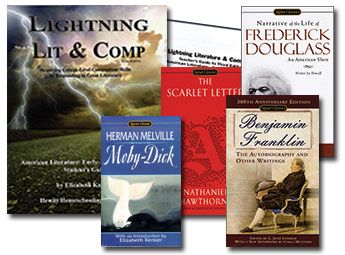

 The student guide presents literature in a way that is not intimidating, yet gives a full picture of the author, the piece being highlighted, and the literary form being illustrated by that work.
The student guide presents literature in a way that is not intimidating, yet gives a full picture of the author, the piece being highlighted, and the literary form being illustrated by that work. 








